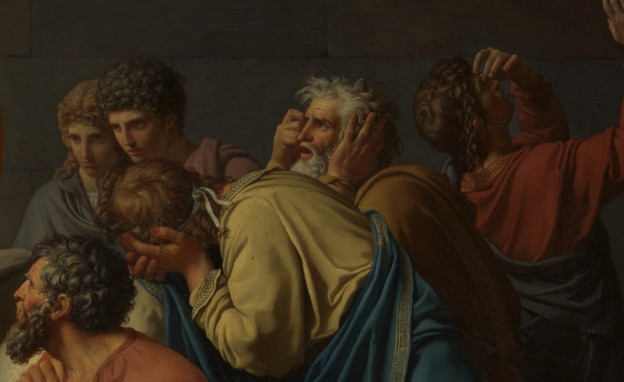There is a representation of the proper role of the Courts called Lady Justice, who is a blindfolded woman holding a set of scales and a sword. She represents fair and impartial administration of the Law, without corruption, greed, or prejudice. Lady Justice is the ideal of our legal system, whether it reaches that lofty goal or not.
True Justice and Mercy were goals of the Israelite system of justice as well. Both Justice and Mercy reflect God’s character, and should radiate in the lives of God’s people. False witness, mercy to our enemies and to strangers, and ensuring the fair administration of justice were vital parts of the Israelite’s life under the Law. They should equally serve as vital parts of our life today.
In the first three verses of Chapter 23, the Israelites are reminded of the importance of not bearing false witness. Reflecting the Ninth Commandment, the Israelites were instructed that “you shall not spread a false report” (v.1). This was meant both in the strict legal sense, but also in spreading empty, false rumours through gossip.
Not only were they to avoid false reports themselves, but nor were they to “join hands with a wicked man to be a malicious witness” (v.1). The wicked man is guilty, and by joining hands with him they were conspiring to let him go free, while the innocent suffered.
Going with the crowds did not exempt from doing the right thing either. They were not to let majority opinion shape their interpretation of justice, nor do so explicitly in a court case and thus pervert the course of justice (v.2).
Partiality was not justification for false witness. Even if sympathetic to a poorer person in court, they could not show partiality to the poor man in his lawsuit (v.3). Economic position, whether great or small, should not affect justice.
Partiality can also be shown in preferring those you care for over those you do not know or despise. In verses four and five, and verse nine, mercy to enemies and outsiders is highlighted.
While it might be easy to view an opponent’s distress or loss as their just desserts, Israelites were instructed that “if you meet your enemy’s ox or his donkey going astray, you shall bring it back to him” (v.4) rather than take advantage of his misfortune.
This duty of care extended to helping him in his time of need. If his donkey, the main method of transportation in those days, had broken down due to bad loading, then an Israelite could not walk by but help him rescue the donkey and rearrange the load (v.5).
Outsiders are also identified as someone to receive justice and mercy. The Israelites were specifically charged “not [to] oppress a sojourner” because they were sojourners once in Egypt and knew oppression (v.9). As outsiders, sojourners could be mistreated since they were often away from their family and kinship groups who could offer support and a watchful eye.
True justice and mercy were also displayed when there was a fair administration of justice in Court. Just as false witness should not occur in favour of the poor (v.3), so too “you shall not pervert the justice due to your poor in his lawsuit” (v.6). Judges should not favour the ruling elites or the powerful and privileged at the expense of the poor.
Nor should justice be used as a veil for evil practice. The Israelites were to keep away from false charges, and not put the innocent to death (v.7). God is the ultimate judge and will ensure all malpractice is judged. That includes malpractice like using the court as a weapon to hurt the innocent.
Finally, judges were not to accept a bribe “for a bribe blinds the clear-sighted and subverts the cause of those who are in the right” (v.8). A bribe affects the judgement of the person who accepts it, and inevitably causes them to act in a way which perverts justice.
As God’s People today, the same principles should bind us. Most of us will not serve as judges in our lands, but we do judge people every day in our interactions with them. When we spread false rumours, or do not stand up to the crowds when they condemn an innocent person, we fall short of the standard set here.
Jesus suffered the harm of false witness, of evil practice covered with the garments of due process, and the harm of enemies. Even his closest friends abandoned him in his time of need. If Christ suffered injustice, we can expect the same, but that does not mean we should serve the same to our enemies, much less our fellow believers.
Instead, we should treat all others, but especially each other, with the same mercy we have received from God. And in our acts to each other, and in the Church’s discipline (through the elders), we should seek justice through truth, impartiality, and loving care.
In doing so we act justly, love mercy, and walk humbly with God.


